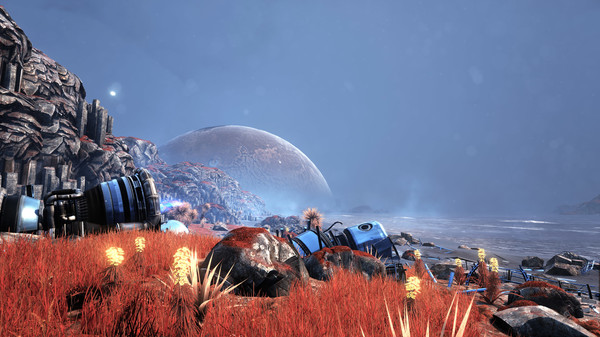
Note: some of the python- packages in the output come from the ROS. See REP-142 for info on ROS top-level metapackages and see REP-3 for an overview of high-level ROS dependencies and required versions for specific ROS releases. The focus of Solus Project isnt sheer exploration and endless survival: theres a linear story and mystery thats intended to take about ten hours to complete. The Solus Project is a first-person single-player survival video game developed by Teotl Studios and Grip Games. Ros-core is really the base ROS metapackage (see below), so replace with the image corresponding to the metapackage you'd like to target (I'd start with core or base first though). I don't know an easy way to recursively list the keys for just system dependencies that a set of ROS packages depends on, but to get a list of what would be installed on a Debian/Ubuntu system, you can use something like the following (this is essentially #q251732, but I'm using the ros:lunar-ros-core Docker image here because it is convenient, it should also work on a regular ROS install): $ docker run -it -rm ros:lunar-ros-core \ Note that the rosdep database that you are referring to doesn't list 'packages', but keys.

Just a quick follow up question there're hundreds of packages in base.yml, therefor I was wondering if there is a list of "core" packages I should start with to get me started? If you can't do this for Solus, you'll have to add support, as described above. If not, you'll probably have to add a package manager 'plugin' to rosdep so it can communicate with whatever Solus uses.Ĭoncluding: ROS_OS_OVERRIDE can be useful, but only if your target OS is (relatively) similar to an already supported OS (ie: Elementary OS may use the Ubuntu supported infrastructure, as it is a derivative).
#THE SOLUS PROJECT MAP HOW TO#
It now needs to know how to install it, see below.Īd 2: does Solus have a package manager? If so, how does it work? Does it use the pkg manager from another OS? If the answer is yes, ROS_OS_OVERRIDE could help. After that, rosdep should know that boost maps to libboost-devel on Solus. You'll have to determine which packages map to which rosdep keys and add those to the database. See #q215059 for some info on rosdep and why that is used in ROS, in addition to an example of such a mapping.
#THE SOLUS PROJECT MAP SOFTWARE#
To add support for a new OS, you'll have to figure out how that OS does its package management (or, in the absence of a package concept, installs new software in general).Īd 1: this comes down to providing mapping rules for rosdep keys to actual package names that Solus recognises. figuring out which package manager to use to install those packages.



 0 kommentar(er)
0 kommentar(er)
